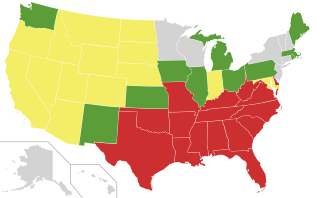One of the points which discussions here has brought home is how much conflict comes about because the government ignores what people in a country want.
e.g. related to the minaret ban which was put to popular vote and passed, I think this would probably have happened in any EU country, no matter which one was given the luxury of popular mandate. [one could easily use any other argument, like the EU formation if they like]
Since the EU is supposedly filled with enlightened peoples, it may have been better if the situations which led to this vote, like immigration post WWII and especially, immigration from non-European, non-white, non-Judeo-Christian countries would have been put to the vote as well.
Is it really fair to assume that such things are "moral" duties which should not be put to popular vote? Should people be forced to live with those kinds of people they do not want in their neighborhoods?
Wouldn't it be better if people had a choice about it? If some people prefer to live in color, ethnicity or religion defined communities, why shouldn't they be permitted to?
e.g. related to the minaret ban which was put to popular vote and passed, I think this would probably have happened in any EU country, no matter which one was given the luxury of popular mandate. [one could easily use any other argument, like the EU formation if they like]
Since the EU is supposedly filled with enlightened peoples, it may have been better if the situations which led to this vote, like immigration post WWII and especially, immigration from non-European, non-white, non-Judeo-Christian countries would have been put to the vote as well.
Is it really fair to assume that such things are "moral" duties which should not be put to popular vote? Should people be forced to live with those kinds of people they do not want in their neighborhoods?
Wouldn't it be better if people had a choice about it? If some people prefer to live in color, ethnicity or religion defined communities, why shouldn't they be permitted to?

